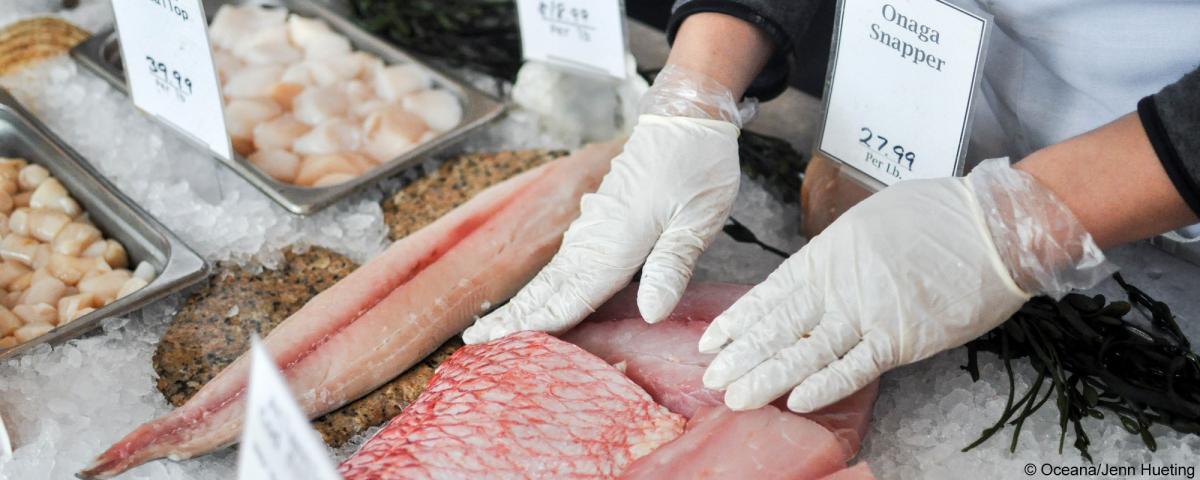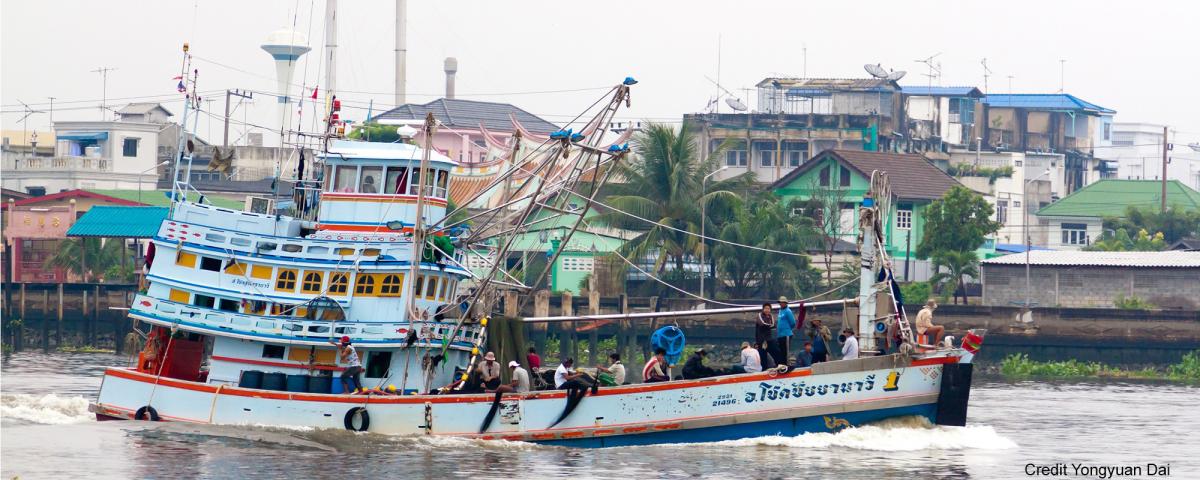January 5, 2018
Is there modern slavery behind your seafood?
Estimated reading time: 0 minutes
When you sit down for your seafood dinner you might not be thinking about where your fish came from or the conditions under which it was caught. Most of us don’t ask for travel records from our food; however when it comes to seafood, looking into the story of your fish could wind up leaving a bad taste in your mouth. Modern slavery in seafood supply chains has been documented for years, and a lack of boat-to-plate traceability in Canada and around the world makes it far too easy for us to support this practice without knowing it.
Illegal, unreported and unregulated fishing (IUU) accounts for nearly one third of the world’s seafood catch and is valued at up to $23 billion USD per year globally.

The connection between illegal fishing and modern slavery, as well as human trafficking, drug and weapon trafficking and child labour, has been thoroughly documented and exposed by numerous investigations. The findings from this research has shown an organized and systemic use of modern slavery by vessels engaged in illegal fishing. Undocumented migrants are being sold, kidnapped and tricked onto fishing vessels to work as forced labourers or indentured slaves. The seafood products from these implicated vessels were then linked to supply chains of major North American food sellers.
Slavery is prevalent within some seafood supply chains because of how difficult it is to regulate fishing activity in international waters, the complexity and lack of transparency in the supply chain and the demand for cheap seafood. But there is something Canadians can do to put a stop to it: as consumers and voters, we can have a say in what seafood comes into this country.

Estimates suggest that around 80 per cent of seafood consumed in Canada is imported. These products follow a long, complex and notoriously opaque path from the fishing vessel or farm to our plate. Reports indicate that up to 32 per cent of wild-caught seafood imported into the U.S. is from illegal and unreported sources . A recent small-scale review by researchers from Dalhousie University and the University of York (UK) found that up to 22 per cent of seafood imported into Canada is at risk of being IUU, though the researchers say that due to limitations in the data available to them, this number is likely to be much higher.
To most effectively fight seafood fraud and illegal fishing, and to cripple the market for slave-caught seafood, Canada must have full-chain traceability. This means that we need to be able to trace our seafood from boat to plate, ensuring illegal products can’t sneak into the country and onto our dinner plates.
Chefs, restaurant owners, seafood industry leaders and thousands of Canadians are joining Oceana Canada and calling on the Canadian Food Inspection Agency to stop seafood fraud by instituting boat to plate traceability. Add your voice by signing this petition. Together, we can insist that seafood be harvested in ways that are regulated and, as consumers, ensure we have the information we need to choose seafood that is safe and healthy for everyone.
Find out more about modern slavery from our Presentation to the House of Commons Subcommittee on International Human Rights and learn how we’re campaigning to stop seafood fraud.

